Skin Cancer - Treatment in Traditional Chinese Medicine
Source/Update: Professor Yu Jiahui
Clinical Professor of TCM, Clinical Department,
School of Chinese Medicine, Hong Kong Baptist University
Introduction:
In this article, Professor Yu Jiahui introduces how traditional Chinese medicine treats skin cancer.
A. Overview (including the use and differences of TCM and Western medicine terminology related to organs and systems)
B. Etiology/Symptoms/Diagnosis
C. Treatment Methods
A. Overview (including the use and differences of TCM and Western medicine terminology related to organs and systems)
Skin cancer generally refers to malignant tumors occurring in the skin, which are divided into two major categories: melanoma and non-melanoma. The more common non-melanoma is further subdivided into basal cell carcinoma and squamous cell carcinoma.
In 2019, there were 1,169 new cases of skin cancer in Hong Kong, of which 1,081 were non-melanoma and 88 were melanoma. Among the three types of skin cancer, melanoma has the highest malignancy and mortality rate. In 2019, there were 67 skin cancer-related deaths, of which melanoma accounted for more than 70% (48 cases).
Non-melanoma mostly occurs on the face and areas easily exposed to sunlight, and may spread to other internal organs via lymph nodes, causing lymphadenopathy. Melanoma most commonly occurs on the extremities (e.g., fingers, toes, palms, soles), but can also appear in other parts of the body, including the face and mucous membranes.
B. Etiology/Symptoms/Diagnosis
In TCM theory, tumors are mostly caused by the interaction of internal and external factors. External factors are mainly dampness, heat, and toxic pathogens; internal factors often include emotional disorders (excessive joy, anger, worry, overthinking), which damage the liver and spleen, leading to qi stagnation, blood stasis, and phlegm turbidity accumulation—all of which stagnate in the skin. The Zhengzong of Surgery (Waike Zhengzong), a classic TCM surgical text from the Ming Dynasty, mentioned "fanhuachuang" (literally "flowering sore"), whose symptoms are similar to those of squamous cell carcinoma in modern medicine. The text states: "Fanhuachuang has a large head and a small stalk—small ones are the size of beans, large ones like fungi. It causes no pain, but bleeds when scraped, and over time weakens the body."
In the early stage of skin cancer, heat-toxin, phlegm, and blood stasis are dominant, which may present as local black or unevenly colored tumors, redness, ulcers, pain, or oozing blood. In the advanced stage, pathogenic factors prevail while healthy qi declines, leading to symptoms of qi and blood deficiency such as fatigue and pale complexion.
In Western medicine, excessive exposure to ultraviolet radiation or frequent contact with chemicals may damage the skin and lead to skin cancer. People with existing moles or a family history of skin cancer are also at high risk.
C. Treatment Methods
Most cases of basal cell carcinoma and squamous cell carcinoma can be cured by cryotherapy, curettage and cautery, surgical resection, or radiotherapy. Due to its high malignancy, melanoma is usually treated with surgical resection of the tumor along with surrounding normal tissue. For patients who cannot undergo surgical resection or those with advanced metastatic disease, chemotherapy is considered.
TCM perspective
In TCM, skin cancer is differentiated based on the tumor’s manifestations, tongue coating, and pulse condition. Early-stage skin cancer is classified into three types: blood heat with damp-toxin, blood stasis with phlegm coagulation, and liver stagnation with blood dryness. In the later stage, as the tumor expands and pathogenic factors overwhelm healthy qi, it often progresses to the qi and blood deficiency type.
The treatment principles and herbal formulas for the four types are as follows:
Blood heat with damp-toxin: Clear heat, cool blood, eliminate dampness, and detoxify. Formula: Modified Huanglian Jiedu Decoction.
Blood stasis with phlegm coagulation: Promote blood circulation, resolve stasis, resolve phlegm, and disperse nodules. Formula: Modified Taohong Siwu Decoction combined with Huajian Erchen Decoction.
Liver stagnation with blood dryness: Soothe the liver, regulate qi, nourish blood, and activate blood circulation. Formula: Modified Danzhi Xiaoyao Powder.
Qi and blood deficiency: Tonify qi and blood, supplemented with detoxification. Formula: Modified Tuoli Xiaodu Powder.
Skin cancer patients should avoid excessive sun exposure and maintain a positive mood. Melanoma has high malignancy, spreads rapidly, is difficult to cure with surgery alone, and has a poor prognosis. For non-melanoma patients, after tumor resection, chemotherapy, or radiotherapy, TCM treatment should focus on tonifying both qi and blood to strengthen the body’s fundamental vitality and restore healthy qi.
(February 2022)




